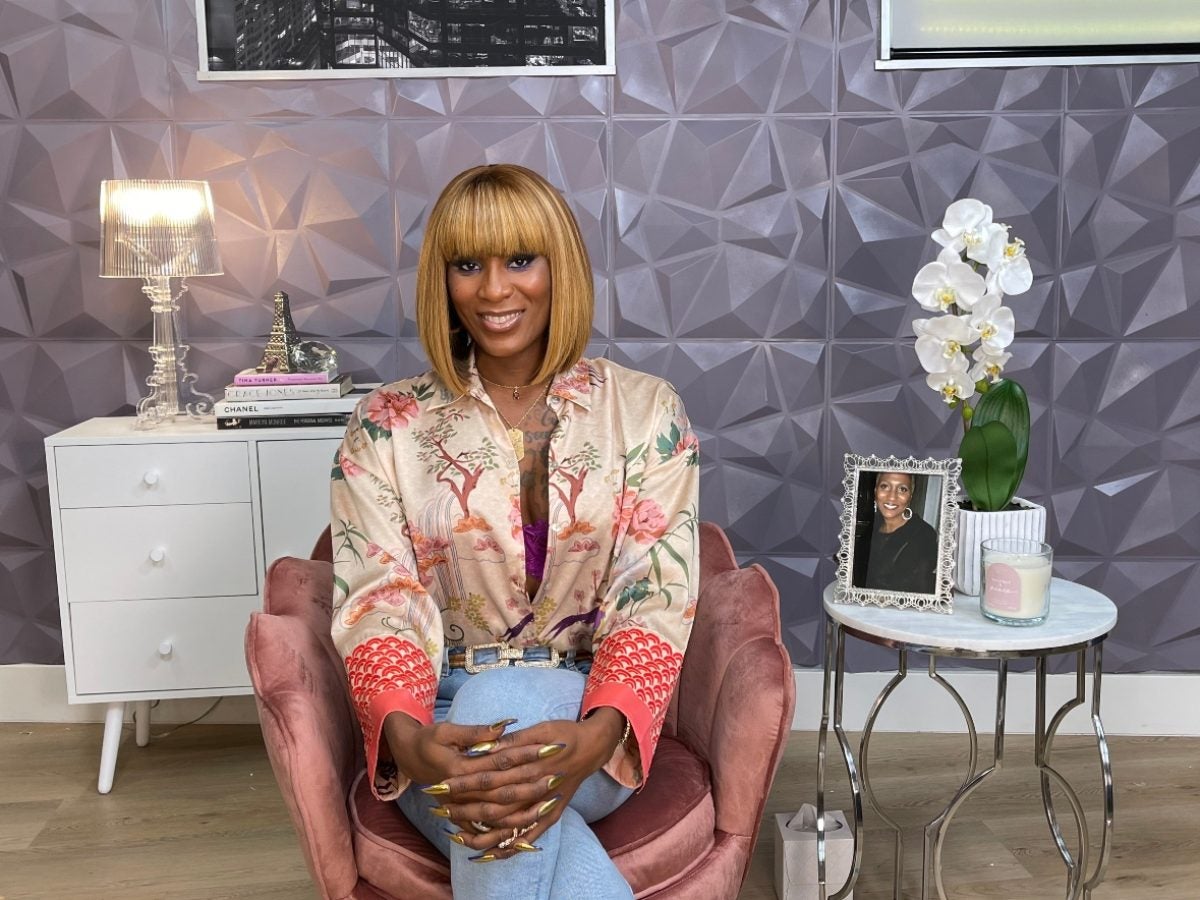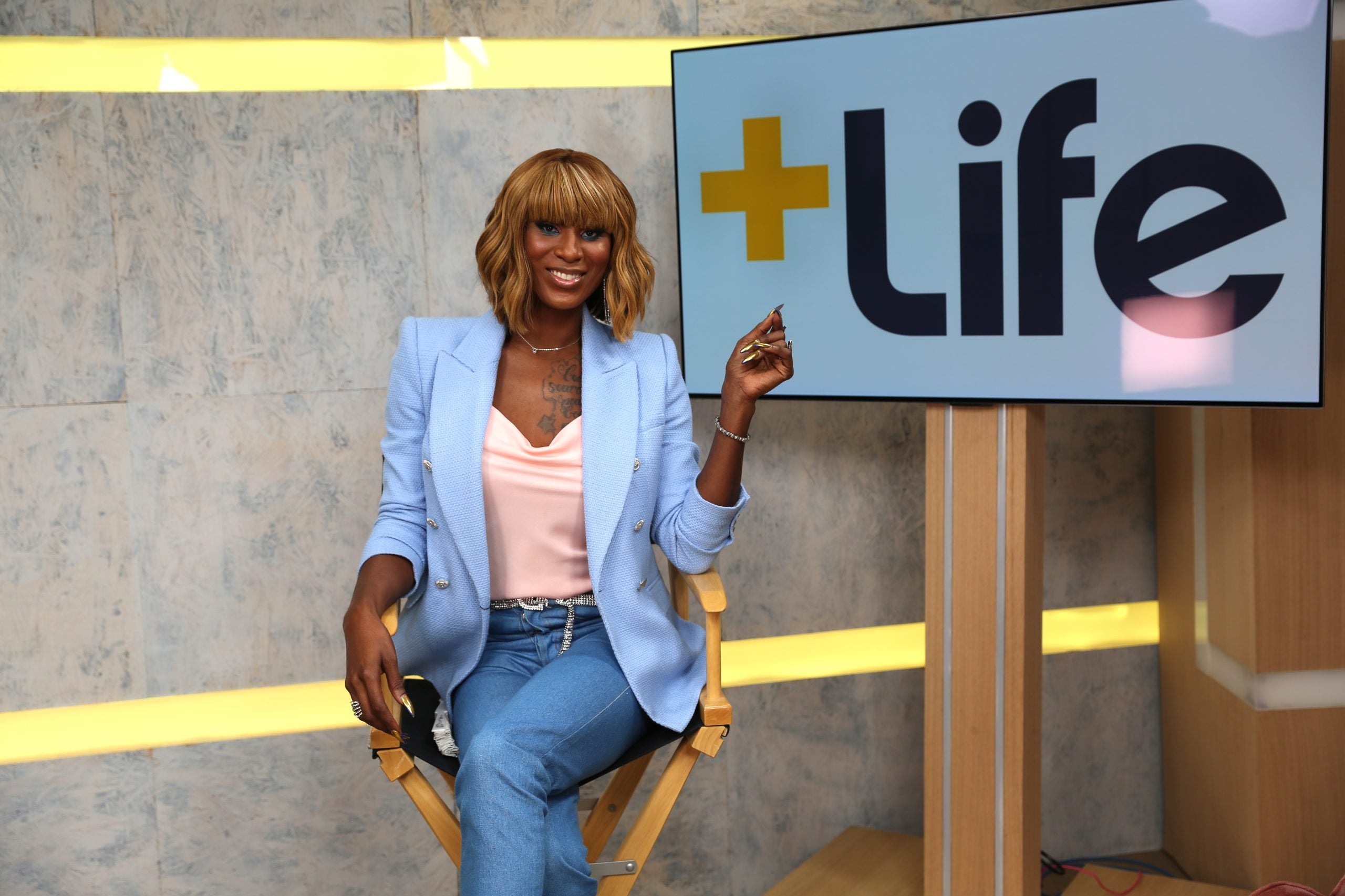
At 43-years-old, Gracie Cartier, former celebrity hairstylist and host of the +Life talk show Transcend, is still in the process of embracing the fullness of who she is. Describing her journey for Out Magazine’s Out 100 this year, Cartier said, “For me, authenticity is all about stepping into the fullness of who I am as a Black powerful woman.”
She didn’t include the trans qualifier.
“Of course, I’m very proud to be a trans woman,” Cartier told ESSENCE. “But at the end of the day, I’m a woman. I’m a Black woman. That’s been the journey. Embracing all of my truth. Embracing all of the aspects of my journey that has led me to this point of my womanhood.”
Cartier understands that people may not understand or support her choice. But identity is personal and a truth only for her and her higher power to fully know. The journey to this level of confidence was not an easy one. Cartier knew from around the age of five that she wasn’t like the other boys around her.
“I watched ballroom dancing, I would watch figure skating. I would watch Miss America pageants,” Cartier recalls. “It was the movement of the woman, it was the clothing, the hairstyles, it was the essence of a woman. I knew that it wasn’t just a little boy who wanted to dress up in their mother’s clothes–although that is something that I did. It naturally felt right to me.”

At the time, she didn’t necessarily have the language to define her feelings. It wasn’t until Gracie was 18, seeing femme queens in the ballroom scene that she realized there were others who were living out her childhood thoughts.
That same year, Gracie came out to her mother. “[I] told my mother I was gay, the first thing she said was, ‘I don’t care if you’re gay, as long as you don’t dress up like a woman.’ So from that point on, I noticed that the feelings that I had were made to be wrong. I did everything in my power to not do that and not be that.”
But living out of alignment with her true self caused drama and turmoil.
“Two years before I transitioned, I told my daughter that I was going to transition and the first thing she said to me was, ‘Well, God didn’t make you that way so why would you want to do that?’ That made me prolong my choice two more years. That’s when I reached the bottom, my lowest point.”
Cartier shared that while so many great things were happening in her life, she was the most unhappy she’d ever been.
“I kept meditating and meditating. I asked myself, ‘Well, what is it?’ And it came to me so simple and clear, ‘Because you’re not living in your truth.’”
Cartier came back to her daughter and told her that while she loved her, she had to move forward with her transition.
“Besides religion, family pressure, societal pressure, I got so sick and tired of all these outside voices telling me who I should be,” Cartier says. “I finally broke into that moment of freedom and rebellion and walking in my truth.”
That rebellion included embracing herself at every stage of her evolution into the woman she knew she was.
“At that time, I didn’t even care how crazy I looked,” Cartier said of her early days living as a woman. “Of course, when society sees me, they think that is a man with a five o’ clock shadow just walking up and down the street, feeling like a woman. I did not care. I just wanted to bask in my truth at that moment.”
There was and still is great fulfillment in living authentically. Still, there are moments when society would like to test that progress.
“I’m a beautiful woman but am I the most passable woman? Absolutely not. Can people look at me and say, ‘I believe that’s a trans woman’? Absolutely. But again, that is when you’re challenged. Do I really believe who I say I am? Do I really love myself the way that I say I do? Do I trust myself and how I show up in the world?”
It was Cartier’s belief in and love for herself that inspired her to share the fact that she has been living with HIV since 2003 on her show Transcend.
“I realize that the things that I say and do, people really do take notice,” Cartier says. “When it comes to HIV, seeing how many friends and loved ones I have lost in my life, for me to continue to walk in the world and be silent after being affected by this so much, I would be doing a great disservice not only to the community and to the world but most importantly to myself and my own healing. It’s been very important for me to share my story and also hear the stories from other individuals that we can all learn from.”
Cartier has lost family members to the illness and knows full well about the stigma and side looks sharing a diagnosis can cause. Still, it’s important that her life be a beacon of hope to others.
“I let people know that life goes on,” Cartier shares. “It doesn’t have to be your headline, your tagline, your entryway into difficult conversations. If you choose to share, good for you, if you choose not to, that’s still good for you. Everyone processes everything differently in their life.”